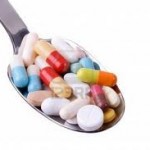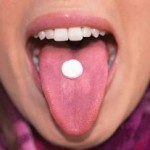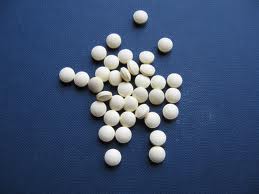A few people commented on my last post that addiction was not the same as OCD. I agree: they overlap, but they’re certainly not synonymous. What I’ve been ruminating about is a related matter: the implication that substance addictions and behavioral addictions are the same. No, I don’t think they’re the same either. I called them cousins, not twins.
There are important things to say about differences in brain mechanisms and other physiological matters. I’m not going to deal with these much here, but the main point is this: Substances such as drugs and alcohol “talk to the brain in its own language,” as I say somewhere in my book. What they provide for the user is immediate, even intimate, in that they directly alter what’s going on in your synapses — the physical medium through which you experience…everything! Their effect does not need to be mediated by actions or events. They affect the brain directly. The implications are huge, but greatest among them is the certainty they provide. Without the middlemen of actions and events to pick up some of the slack, you can be pretty sure you’ll get what you paid for.
In this post I’m going to look more closely at what it is you get — what I got — by examining my own experiences. In doing so, I hope to pinpoint what I think is unique about substance addiction.
My addiction was mostly to opiates, though I also had a great fondness for cocaine at times. And though that was 31 years in the past, I managed to revisit my addiction about two years ago. I don’t often talk about this, but I don’t hide it either. In fact I wrote an essay about my partial re-addiction, published in Toronto Life (one of the most popular life/culture/news magazines in Canada), and that essay is available for all to see on this website. I had been through some pretty serious back surgery, and I was in a lot of pain for about 6 months. Which meant 6 months of painkillers. Which meant I got to experience the joys of QUITTING all over again.
It wasn’t nearly as bad as it was the last time. I hadn’t broken any laws and I hadn’t compromised my life. But it was…a potent reminder of what it’s like to have a substance play an unduly prominent role in one’s psychological life, and the step-down I went through with my doctor was a reminder of the ferocity of withdrawal symptoms — this time properly managed, thank goodness.
In any case, my memories remain pretty fresh.
 Being a substance addict always meant the same thing to me. It meant putting a huge amount of value in a thing or things. Pills, for example. The substance was hard currency. You could save it up, you could collect it at the back of your drawer. You could sit up at night and count it. I don’t suppose you can do that with internet addiction or sex addiction, though I could be wrong. But for me, the substance, the thing itself, the currency, had enormous symbolic value — as currencies generally do. And the value was that I could cash it in for a feeling any time I wanted.
Being a substance addict always meant the same thing to me. It meant putting a huge amount of value in a thing or things. Pills, for example. The substance was hard currency. You could save it up, you could collect it at the back of your drawer. You could sit up at night and count it. I don’t suppose you can do that with internet addiction or sex addiction, though I could be wrong. But for me, the substance, the thing itself, the currency, had enormous symbolic value — as currencies generally do. And the value was that I could cash it in for a feeling any time I wanted.
Most important, the exchange rate was pretty reliable, given a certain amount of slippage — inflation — due to tolerance. So this currency gave me instant and predictable access to a feeling, just by putting something inside my body. Unlike gambling, where you have to be lucky, or like food addiction, where what you feel is a complex blend between calories, flavour, and your distance to the nearest Seven-Eleven, drugs gave me reliable access to a warm feeling that itself was (at least partly) symbolic. A symbol of a symbol? Sounds complicated. In fact it was very simple. The warm feeling was a version of some fundamental state of calm, contentment, peace… But it was really just a version. It was a nice feeling, but not quite the real thing.
Certainly other addictive rewards are symbolic: winning at cards, beating on-line opponents, having sex with…let’s not even go there. So I don’t think that’s the main difference between substance and behavioral addictions. The main thing, for me anyway, was  that I had possession of these things, these pills. That gave me total control of the cascade of symbols and feelings that I had become attached to. Substances are….there. They’re objects, in three dimensions, solid, liquid, or even gas, I suppose, if you count nitrous oxide. You can hold them in your hand and take them when you want to. (Until they run out, of course.)
that I had possession of these things, these pills. That gave me total control of the cascade of symbols and feelings that I had become attached to. Substances are….there. They’re objects, in three dimensions, solid, liquid, or even gas, I suppose, if you count nitrous oxide. You can hold them in your hand and take them when you want to. (Until they run out, of course.)
And what that means, dear friends, as I’m sure most of you know, is that you don’t have to get good feelings from other people or other activities. You don’t have to get good feelings from being at one with yourself, from loving yourself. You have this direct access to good feelings — sitting in your drawer. That gives you control. And control is the one thing we simply don’t have with other people, or with life in general. In fact the opposite of control is helplessness, and I believe that helplessness is the fundamental state we spend most of our time and energy trying to get away from. Brain-altering substances are just a little more efficient than anything else — at turning our backs on our helplessness.
 I think that the bottom-line value of all addictive acts is that they give us access to feelings that are not accessible without them. I think that must be true of gambling and sex and the internet and crack, speed, booze, and everything else. But behavioral addictions don’t affect your brain directly. They require you at least to DO something — which involves more work, more symbolism, more uncertainty. Substance addictions simply require you to open your mouth, your nose, or your veins.
I think that the bottom-line value of all addictive acts is that they give us access to feelings that are not accessible without them. I think that must be true of gambling and sex and the internet and crack, speed, booze, and everything else. But behavioral addictions don’t affect your brain directly. They require you at least to DO something — which involves more work, more symbolism, more uncertainty. Substance addictions simply require you to open your mouth, your nose, or your veins.

Leave a Reply to Denise Cancel reply